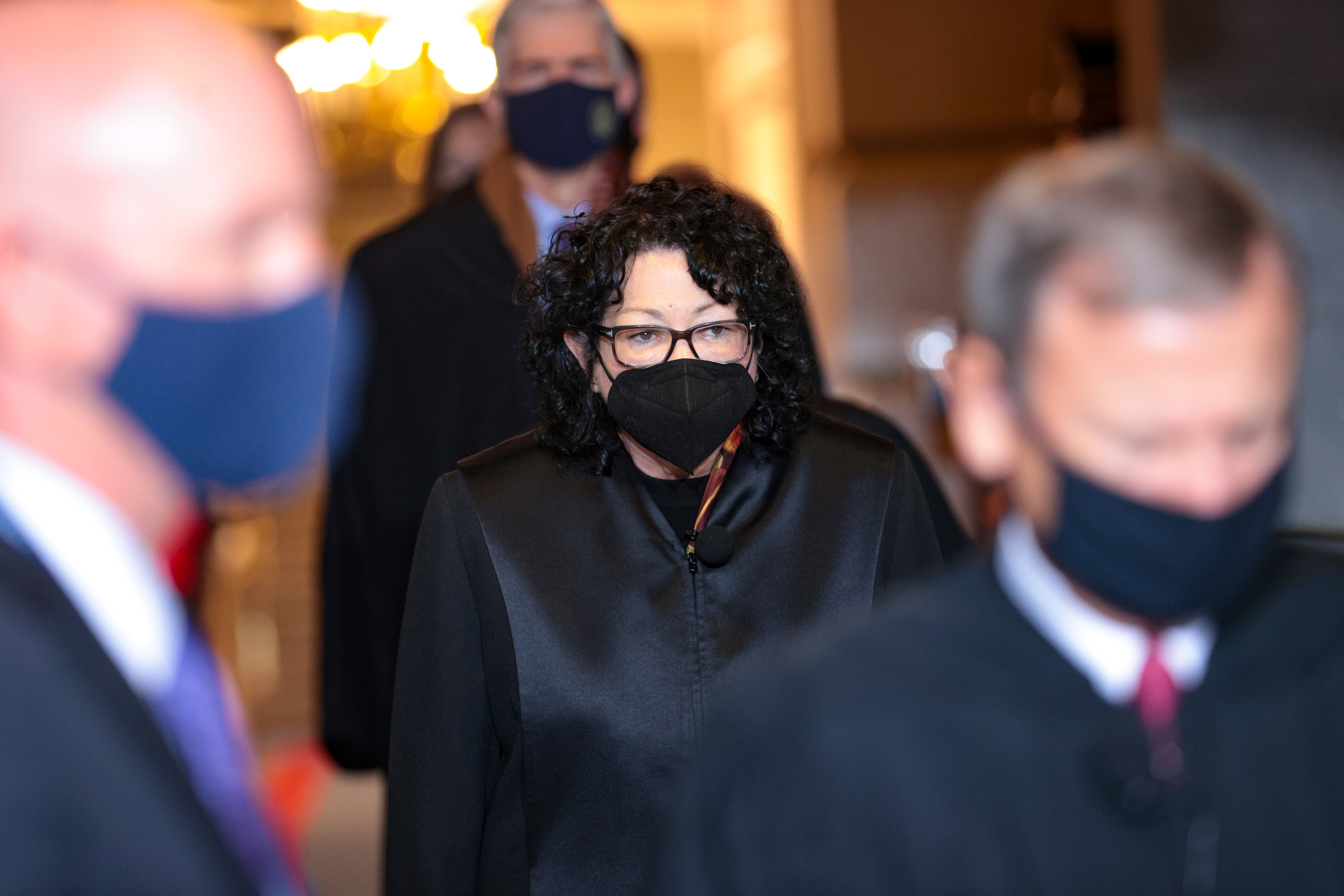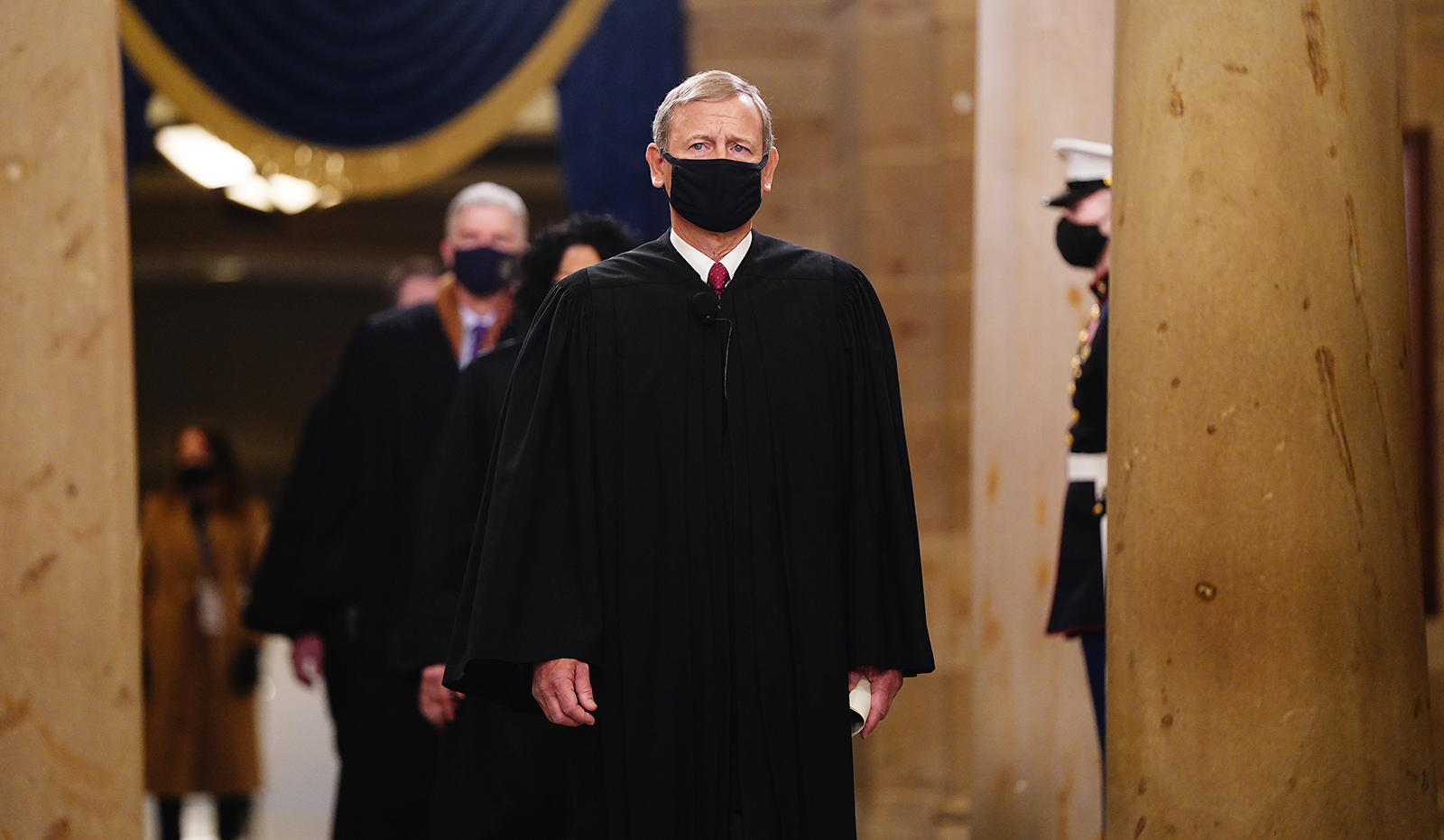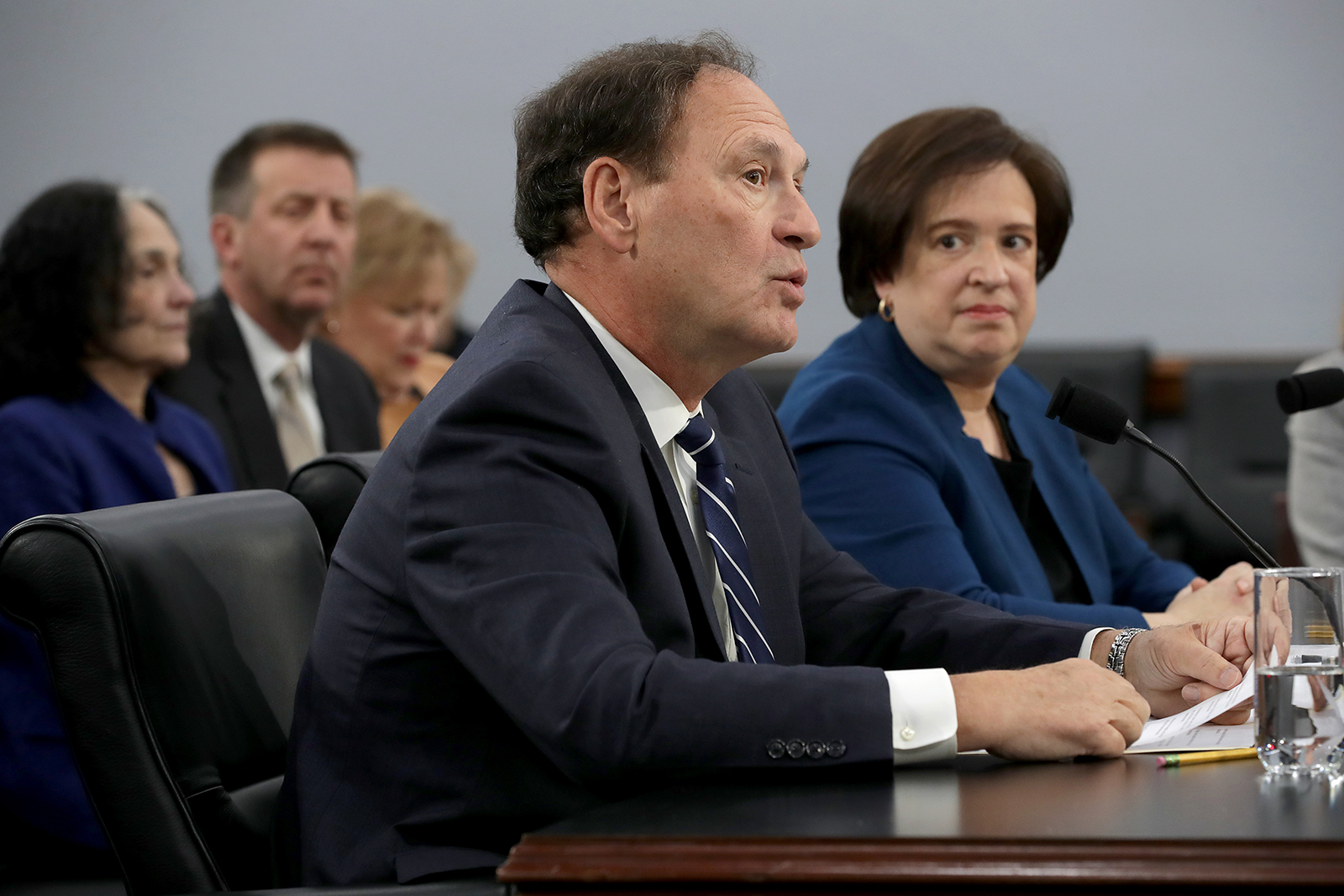The oral arguments on the Texas law that bars abortion at around six weeks of pregnancy have wrapped. Supreme Court justices heard two sets of arguments for nearly three hours.
The justices limited their review to the law's novel structure, which bars state officials from enforcing it. Instead, private citizens — from anywhere in the country — can bring civil suits against anyone who assists a pregnant person seeking an abortion in violation of the law.
Critics say the law was crafted to shield it from challenges in federal courts and stymie attempts by abortion providers and the government to sue the state and block implementation.
What the justices said: Two key conservative justices seemed open to arguments from abortion providers that they should be able to challenge the ban in federal court, but in a separate challenge, brought by the Department of Justice, several conservative justices did express some reservations about the breadth of the government's arguments, with Chief Justice John Roberts calling the Biden administration's argument "as broad as can be."
Some justices, led by Justice Elena Kagan, suggested that the court could allow the suit brought by abortion providers to go forward and refrain from having to take action on the more complicated Justice Department case.
Reading tea leaves at the oral arguments, however, is a complicated endeavor.
Oral arguments were two months to the day that a 5-4 court allowed the law to go into effect, halting most abortions in the country's second largest state, and flooding clinics in nearby states with patients from Texas.
Amid a nationwide firestorm, the Supreme Court agreed to fast-track two appeals brought by a coalition of abortion providers and the Biden administration, signaling that the justices understand the case to be one of the most urgent the court has considered under Roberts.
What may come next for the law is still up in the air, there’s no deadline or anything forcing the justices to act. Their decision to fast-track the oral arguments may however be an indication that they may act sooner rather than later.
Each side's arguments: The justices heard from Marc A. Hearron, a lawyer for the Center for Reproductive Rights representing a coalition of Texas abortion providers, Texas Solicitor General Judd E. Stone and newly confirmed Solicitor General Elizabeth Prelogar who argued on behalf of the Department of Justice.
Lawyers fighting the law called it blatantly unconstitutional and designed with the express intent to make challenges in federal court nearly impossible, therefore nullifying a woman's constitutional right to an abortion.
"Texas designed SB 8 to thwart the supremacy of federal law in open defiance of our constitutional structure," Prolegar said. "States are free to ask this court to reconsider its constitutional precedents, but they are not free to place themselves above this court, nullify the court's decisions in their borders, and block the judicial review necessary to vindicate federal rights."
Hearron argued that the providers should be able to proceed with a lawsuit targeting not only Texas officials but also state court judges, clerks and any private parties who are responsible for implementing the law. The crux of the argument is that the state legislature cannot craft a law that's insulated from review in federal courts, particularly when the state has delegated enforcement to the general public.
In response to both disputes, Texas says neither case can proceed because the state is not the proper defendant since SB 8 bars state officials from enforcing the law.
Stone emphasized that neither case "presents a case or controversy" and that both challenges should be dismissed. Targeting the Biden administration's argument that federal law is supreme, Stone said the Constitution does not allow a "grant of federal power to sue whenever the United States wants."
What the law does: S.B. 8, the law in question, bars abortions after the detection of a fetal heartbeat at around six weeks — often before a woman knows she is pregnant — and is in stark contrast to Roe v. Wade, the 1973 landmark decision legalizing abortion nationwide prior to viability, which can occur at around 24 weeks of pregnancy.
After the justices allowed the law to go into effect on Sept. 1, with Roberts joining the liberal justices in dissent, women in the state scrambled across state borders and lower-income women were left with few options. The law has no exception for rape or incest.
Read more about today's oral arguments here.






